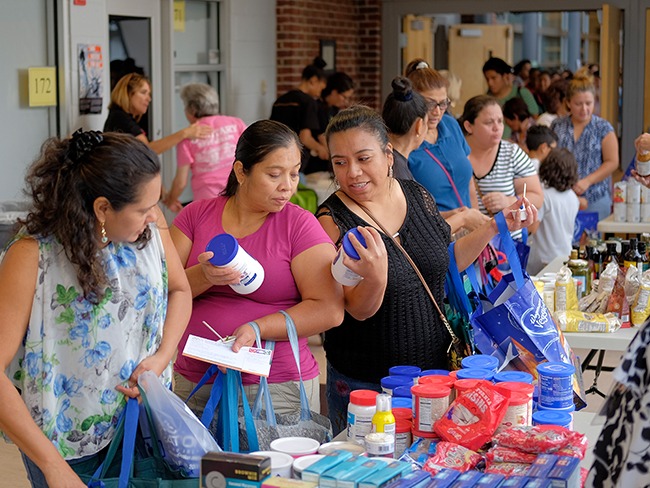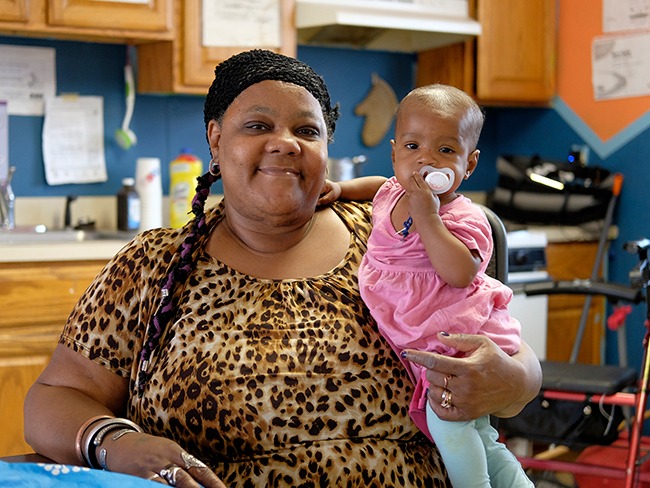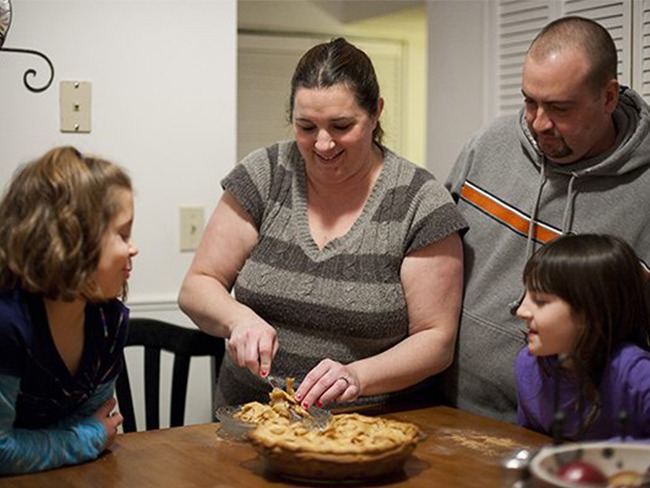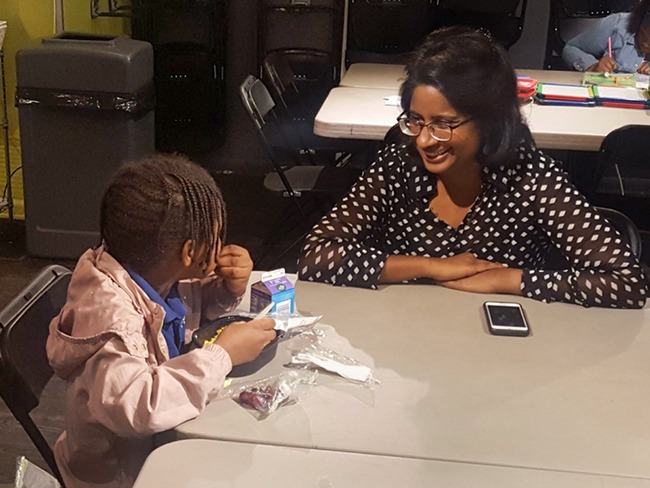As a girl, I remember visiting my grandmother in India. At the end of a meal she would offer food to the women who worked in her home, knowing most of them had very limited economic means. She also knew that the food that went home would almost always go to their husbands and children first, and that they would eat last. So my grandmother always insisted they eat before they left for the day.
 Later, as a grown up working in international development across several countries, I saw these same patterns over and over. I heard stories from women of saving a tiny wedge of a candle so a daughter could finish her homework while the men and boys in the village watched a movie on the communal television. Or of saving up some food in the folds of her outfits to provide to her children later, even if she hadn’t eaten that day. Women consistently had less and sacrificed more.
Later, as a grown up working in international development across several countries, I saw these same patterns over and over. I heard stories from women of saving a tiny wedge of a candle so a daughter could finish her homework while the men and boys in the village watched a movie on the communal television. Or of saving up some food in the folds of her outfits to provide to her children later, even if she hadn’t eaten that day. Women consistently had less and sacrificed more.
Now, working back in the US, the scenes are different but the themes are too often the same.
Nearly 15 million family households in the United States are headed by women. For a variety of reasons, including a persistent wage gap between the genders, about 26 percent of those families, or 3.9 million family households, have incomes that fall below the poverty level.
 Hunger, too, disproportionately impacts these households. More than a third (35.5%) of single parent families in this country that are headed by women are food insecure, meaning they don’t always know where their next meal will come from. In comparison, the rate of food insecurity in single parent households headed by a man is 21.7%.
Hunger, too, disproportionately impacts these households. More than a third (35.5%) of single parent families in this country that are headed by women are food insecure, meaning they don’t always know where their next meal will come from. In comparison, the rate of food insecurity in single parent households headed by a man is 21.7%.
Here in our nation’s capital region, I’ve met and spoken with women who are facing hurdles and making sacrifices as significant as any I’ve witness abroad. Mothers who work two and three jobs to keep the household afloat, who skip meals to make sure their children have enough to eat. And senior women, who make up nearly 70% of those served by our supplemental grocery programs for older adults, who continue to make difficult trade-offs between food and other necessities like medicine.
Whenever I talk with some of the smart, boisterous girls who participate in our children’s meal programs, I consistently ask myself: what can we do to ensure they experience different paths than some of their mothers and grandmothers?
 Providing good food today to help women, girls, and all in our community stay healthy and strong is and will continue to be an essential part of that answer. The food bank is committed to supporting the well-being of all of our neighbors by providing 32 million meals each year. Several of our 450+ nonprofit partners also offer services specifically for women, including childcare services, shelter from domestic abuse, transitional housing, and health care. Because these partners receive food from the food bank, they can direct more resources towards these programs.
Providing good food today to help women, girls, and all in our community stay healthy and strong is and will continue to be an essential part of that answer. The food bank is committed to supporting the well-being of all of our neighbors by providing 32 million meals each year. Several of our 450+ nonprofit partners also offer services specifically for women, including childcare services, shelter from domestic abuse, transitional housing, and health care. Because these partners receive food from the food bank, they can direct more resources towards these programs.
Additionally, we’re thinking about new models for addressing hunger’s root causes by working in partnership with new kinds of organizations to pair food with skill development, education, and health care. Some of these new approaches are being developed with a primary focus on women, including new pilot programming that pairs groceries with pre- and post-natal care.
 There is enormous upside potential for communities when we invest in women. Numerous studies have shown that when women have access to the resources they need to thrive, they re-invest – up to 90% of their earnings – in the well-being of their families and those around them.
There is enormous upside potential for communities when we invest in women. Numerous studies have shown that when women have access to the resources they need to thrive, they re-invest – up to 90% of their earnings – in the well-being of their families and those around them.
While women across the globe may dress differently, speak different languages, and have different customs, our hopes and desires for a life of dignity, respect, health, and equal opportunity for ourselves, our families, and our communities are the same everywhere.
And nowhere is that more true in our region, where the potential of our thousands of women and girls is just waiting, with the help of good food and the right support, to be unlocked.

